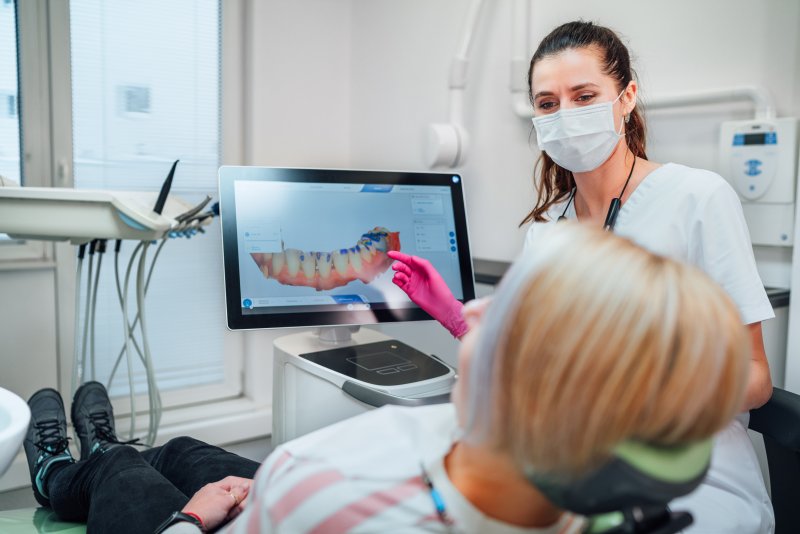
If you’ve heard of dental implants, you likely know they tend to succeed. Their placement process works so well that they have a 95% success rate. Well, this effectiveness stems from a long string of innovations. Dental implant technology lets the metal posts work as the gold standard of tooth replacement. Your Jonesboro dentist will gladly share some key examples. To that end, here are four recent tools that enhance today’s dental implant results.
CT/Cone Beam Scanner
One key implant tool is the cone beam CT scanner. The technology it depends on was invented in the late 1960s, but the latter was refined in more recent years.
Put simply, the cone beam CT scanner builds a 3D model of a dental patient’s mouth. This model shows a dentist the facial nerves, sinuses, jawbone density, and more. Such details allow them to perform successful dental implant placements. By having them at hand, the dental team can avoid unwanted side effects from treatment.
Intraoral Scanner
Aside from cone beam scanners, many dentists now use intraoral ones as well. These devices help to create modern implants.
In essence, an intraoral scanner captures digital impressions of the mouth. It does this to design implant posts better. By using one, dentists avoid having to pour a cast and save time waiting on plaster molds. As needed, the scanner is also used for guided implant surgery.
No-Bone-Loss Implants
According to recent studies, it’s possible to craft implants that discourage bone loss. All it takes is the use of computer-aided design and computer-aided manufacturing (CAD-CAM).
CAD-CAM’s basic aim is to make replicas of the missing teeth, which can then be placed in the mouth. Each duplicate is ready for placement as soon as the old tooth is gone. Better yet, the healing process is symptom-free; patients get the ideal treatment in the least amount of time.
Antibacterial Coating
Another big breakthrough is an antibacterial implant coating. While not widely available, this innovation will increase the longevity of dental implants.
You see, dental implants can be affected by acidic food. The latter tends to erode the former’s materials over time. All that said, an antibacterial coating will change this fact. Implant patients will have more freedom to eat and drink without risking their new teeth.
Of course, these are just a few pieces of current dental implant technology. Feel free to ask your dentist about other kinds that ensure treatment success.
About the Author
Dr. Shane Smith is a dentist based in Jonesboro, AR. Since earning his DDS from the University of Tennessee’s Health Science Center, he’s become well-versed in comprehensive dental care. That means he offers preventive, cosmetic, and restorative services, as well as emergency services. You can also count on him to use the latest dental implant technology. Dr. Smith currently practices at his self-titled clinic and is reachable on his website and by phone at (870)-932-2644.
